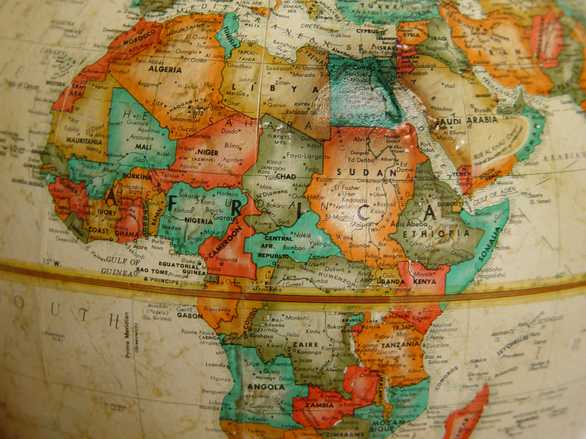U.S. Report Finds Religious Freedom Conditions ‘Continued to Deteriorate’ Worldwide in 2017

WASHINGTON — An annual government report outlining the state of affairs for religious freedom across the globe has found that “conditions continued to deteriorate” and remained on a “downward trend” in 2017.
“Religious freedom conditions continued to deteriorate in countries across the globe in 2017. This ongoing downward trend often intersected with authoritarian practices characterized by hostility toward dissent, pluralism, independent media, and active civil society, or took place under the guise of protecting national security or countering terrorism,” wrote the U.S. Commission on International Religious Freedom (USCIRF) in its 2018 report.
The document focused on 28 countries that have most egregiously persecuted residents for their faith.
“The most severe abuses included genocide and other mass atrocities, killings, enslavement, rape, imprisonment, forced displacement, forced conversions, intimidation, harassment, property destruction, the marginalization of women, and bans on children participating in religious activities or education,” it outlined.
Countries cited in the report include Burma, the Central African Republic, China, Eritrea, Iran, Nigeria, North Korea, Pakistan, Russia, Turkey and Kazakhstan. While it reflects persecution of a number of religious minority groups, the report does mention Christianity over 200 times.
In China, the document explained, the government continued in 2017 to crack down on churches that operated outside of the official Three-Self Patriotic Movement (TSPM).
“As a result, unregistered churches were pressured to register with the state, labeled as ‘evil cults,’ and faced ongoing destruction of purportedly ‘illegal’ church properties,” the report noted. “Churches experienced increased restrictions and surveillance, including a campaign to install security cameras on church premises, primarily in Zhejiang Province.”
“In 2017, Chinese officials also arrested two South Korean pastors and forcibly removed more than 60 South Korean Christians after alleging the individuals acted as missionaries for their work assisting North Korean refugees in China,” it explained.
In Iran, Christians “are particularly targeted for repression because many conduct services in Persian and proselytize to those outside their community,” the report outlined. “Pastors of house churches are commonly charged with unfounded national security-related crimes, as well as apostasy and illegal house-church activities.”
It explained that four Christians were sentenced to 10 years in prison last year for engaging in evangelistic activity and for operating house churches.
North Korea especially is hostile toward Christianity, USCIRF found, and seeks out those who are worshipping Christ in secret.
“The North Korean regime reviles Christianity and considers it the biggest threat among religions; the regime associates Christianity with the West, particularly the United States,” the report relayed. “Through robust surveillance, the regime actively tries to identify and seek out Christians practicing their faith in secret and imprisons those it apprehends, often along with their family members even if they are not similarly religious.”
It also pointed to the recent findings of the War Crimes Committee of the International Bar Association, which reported that “Christians are heavily persecuted and receive especially harsh treatment in prison camps,” and that prisoners are “tortured and killed on account of their religious affiliation,” including for attending Christian gatherings or reading the Bible.
Because of the ongoing—and increasing—religious liberty violations, USCIRF has again recommended that the U.S. Department of State list China, Iran and North Korea, along with Burma, Eritrea, Saudi Arabia, Sudan, Tajikistan, Turkmenistan, Uzbekistan, Central African Republic, Nigeria, Pakistan, Russia, Syria and Vietnam, as Countries of Particular Concern (CPCs).
It recommended that Afghanistan, Azerbaijan, Bahrain, Cuba, Egypt, India, Indonesia, Iraq, Kazakhstan, Laos, Malaysia and Turkey also be placed on a tier II list due to concerns over their treatment of religious entities.
“While religious freedom violations in many parts of the world continue to be grave,” the report stated, “there are real reasons for optimism 20 years after the U.S. Congress’ landmark passage of IRFA (International Religious Freedom Act). Severe violations still occur, but are less likely to go unnoticed.”
“The U.S. government, once nearly alone in this effort, has an increasing number of partners with which to work on freedom of religion abroad, including international organization entities, foreign government bodies, and a global parliamentary network. The media and civil society in the United States and abroad are more focused on international religious freedom issues than ever before.”
Become a Christian News Network Supporter…
 Dear Reader, has ChristianNews.net been of benefit and a blessing to you? For many years now, the Lord has seen fit to use this small news outlet as a strong influential resource in keeping Christians informed on current events from a Biblical worldview. Despite Facebook’s recent algorithm changes, which has limited our readership, and, as a result, has affected operational revenue, we continue to strive to bring you the news without compromise and to keep Christ in focus. If you have benefited from our news coverage, would you please prayerfully consider becoming a Christian News supporter by clicking here to make a one-time or monthly donation to help keep the truth widely and freely published and distributed? May Christ continue to be exalted through this work!
Dear Reader, has ChristianNews.net been of benefit and a blessing to you? For many years now, the Lord has seen fit to use this small news outlet as a strong influential resource in keeping Christians informed on current events from a Biblical worldview. Despite Facebook’s recent algorithm changes, which has limited our readership, and, as a result, has affected operational revenue, we continue to strive to bring you the news without compromise and to keep Christ in focus. If you have benefited from our news coverage, would you please prayerfully consider becoming a Christian News supporter by clicking here to make a one-time or monthly donation to help keep the truth widely and freely published and distributed? May Christ continue to be exalted through this work!





Comments are closed.